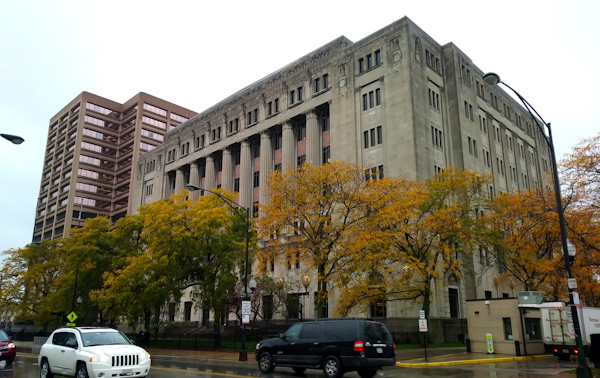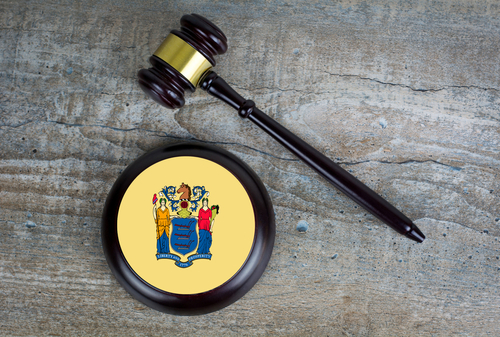SCOTUS winds up term with rulings expected on major cases about government power, accountability
U.S. Supreme Court
The Supreme Court heard the last oral arguments of the term on April 25, and now we wait for the decisions with the expectation of the usual flurry of rulings at the end of June. In thinking about the pending cases, a significant number involve the scope of government power and how to hold the government accountable.
Trump cases
This is obviously so for Trump v. United States, which was the last case to be argued this term. The issue is whether and when a former president can be criminally prosecuted for conduct that occurred while in office. What was most surprising was the sharp ideological division that emerged during oral arguments. The more liberal justices focused on what Donald Trump was alleged in the indictments to have done and the implications of giving a president broad immunity from criminal prosecutions.
In a series of questions, Justice Elena Kagan asked Trump’s lawyer, D. John Sauer, about what was alleged in the federal court indictment and stressed that what Trump did was to help himself politically and not about discharging the powers of the presidency. In response to a question from Justice Ketanji Brown Jackson, Sauer said that a president ordering the assassination of a political rival could be deemed an official act and immune from criminal prosecution. Perhaps most astounding, in response to a question from Justice Kagan, he said that a president ordering a military coup to stay in power could be deemed an official act.
But the conservatives, especially Justices Neil Gorsuch and Brett Kavanaugh, wanted to look not at Trump’s conduct, but on their sense of a need for broad presidential immunity from prosecution. Justice Gorsuch said: “I’m not concerned about this case, but I am concerned about future uses of the criminal law to target political opponents based on accusations about their motives.” He added: “We’re writing a rule for the ages.” Justice Samuel Alito, in a lengthy series of questions, expressed strong support for Trump, even indicating he thought that Trump had been treated unfairly, and he voiced great concerns about allowing former presidents to be criminally prosecuted.
Before oral arguments, I thought that this might be a case like United States v. Nixon or Clinton v. Jones, where the justices set aside their partisan differences and were unanimous in ruling against expansive presidential immunity. But after hearing the questions, that seems quite unlikely. Also, the timing of this ruling matters, as well as how the court directs that further proceedings will be handled, in terms of whether Trump will face trial in federal court in Washington, D.C., before the November 2024 election.
And already, in Trump v. Anderson, the court limited presidential accountability. The court held that a state court could not bar Trump from being on the ballot on account of Section 3 of the 14th Amendment. In a per curium opinion, the court held that it is not for state courts to enforce Section 3 and that its enforcement requires a statute by Congress.
Administrative agencies
This term is likely to be remembered for its rulings with regard to the administrative state. In the last two terms, the court imposed a significant new limit on the power of administrative agencies: the major questions doctrine. In West Virginia v. Environmental Protection Agency, in 2022, and in Biden v. Nebraska, last year, the court ruled against agency actions by saying that they involved major questions of economic or political significance, but without sufficiently specific congressional authority.
This year, the court is likely to go much further in limiting federal agencies. In Consumer Financial Protection Bureau v. Community Financial Services Association of America, Limited, the issue is whether the Consumer Financial Protection Bureaus is unconstitutional because it receives funding directly from the Federal Reserve, which collects fees from member banks, rather than from yearly appropriations from Congress. The court potentially could declare an entire agency unconstitutional and restrict the choices of Congress in funding federal agencies.
In Securities and Exchange Commission v. Jarkesy, the court is considering several issues with regard to the power of federal agencies. Does it violate the Seventh Amendment for a federal agency to impose civil penalties in an administrative agency? Is it an unconstitutional delegation of legislative power to allow an agency to decide whether to seek the penalties in an administrative proceeding or in a federal court? Does it violate separation of powers to provide administrative law judges protection from removal if the heads of their agency have protections from removal?
On Jan. 17, the court heard oral arguments in two cases—Loper Bright Enterprises v. Raimondo and Relentless v. Department of Commerce—that pose the question of whether the court should overrule Chevron v. Natural Resources Defense Council. The Chevron doctrine provides that a federal court should defer to a federal agency when it is interpreting an ambiguous statute providing it authority. It seemed likely from the oral arguments that the court is poised to end Chevron deference, which will make it much easier for those being regulated to challenge agency actions in federal court.
And though it is seen as a case about access to abortion, ultimately Food and Drug Administration v. Alliance for Hippocratic Medicine is about the power of a federal agency. The U.S. Court of Appeals for the 5th Circuit ruled that the FDA violated the Administrative Procedures Act by acting in a manner that was arbitrary, capricious or an abuse of discretion in changing rules to make the drug mifepristone, which is used to induce abortions, more easily available. From the oral arguments, it seems that many of the justices have concerns about whether the plaintiffs are sufficiently likely to be injured so as to have standing to sue in federal court.
The constitutional reach of criminal law
Other cases about government power involve when the law can be used to make conduct a crime. In United States v. Rahimi, the issue is the constitutionality of a federal law that makes it a crime for a person under a restraining order in a domestic violence case from having a gun. The case is likely to be critical in determining when the government may regulate firearms without violating the Second Amendment.
In City of Grants Pass v. Johnson, the court will decide whether a city can make it a crime for a person to sleep in public when there are not adequate shelter beds for the unhoused. The U.S. Court of Appeals for the 9th Circuit held that such criminal punishments were cruel and unusual punishment.
Conclusion
This is yet another year filled with likely blockbuster decisions. Some of the rulings well could matter for the coming presidential election. But they also will have impact for a long time to come in determining the scope of government power.
Erwin Chemerinsky is dean of the University of California at Berkeley School of Law and author of the newly published book A Momentous Year in the Supreme Court. He is an expert in constitutional law, federal practice, civil rights and civil liberties, and appellate litigation. He’s also the author of The Case Against the Supreme Court; The Religion Clauses: The Case for Separating Church and State, written with Howard Gillman; and Presumed Guilty: How the Supreme Court Empowered the Police and Subverted Civil Rights.
This column reflects the opinions of the author and not necessarily the views of the ABA Journal—or the American Bar Association.






